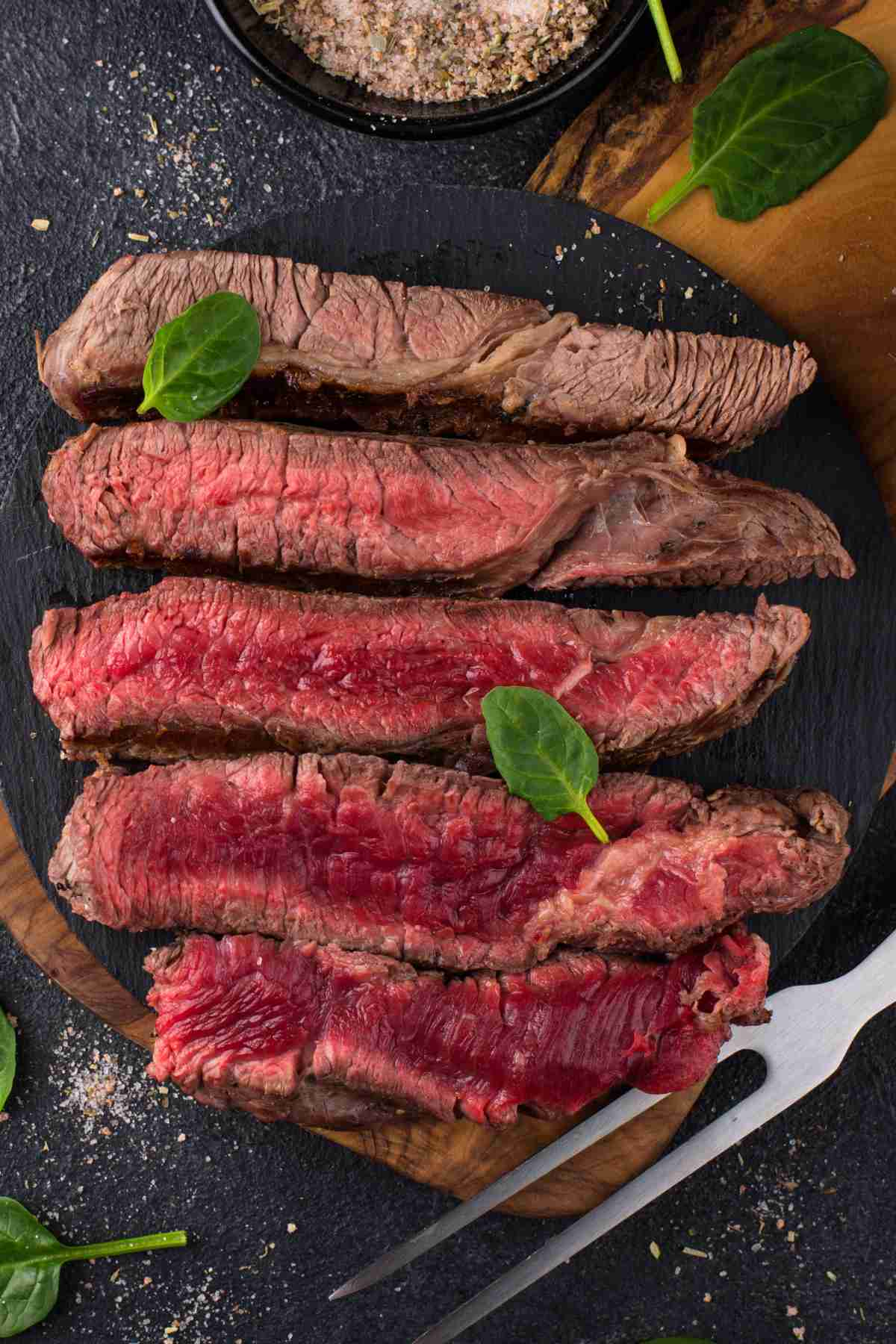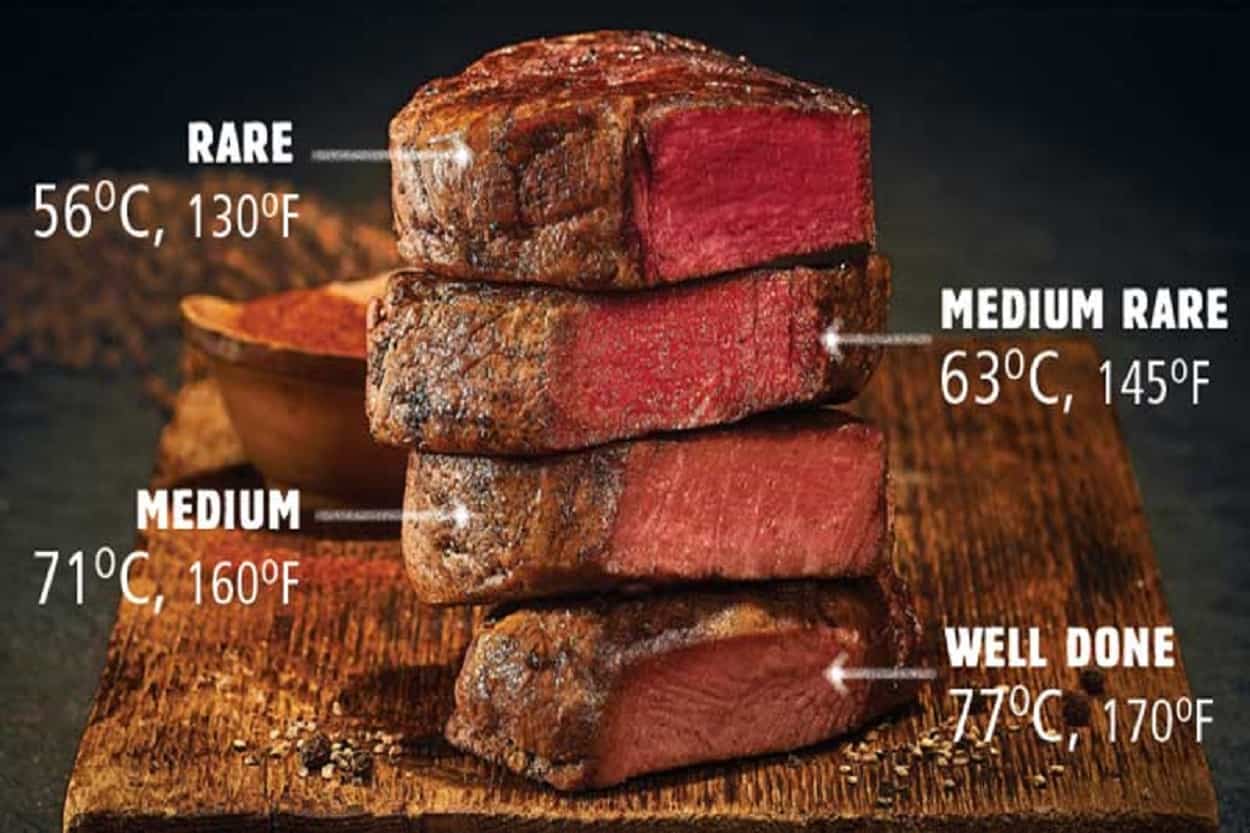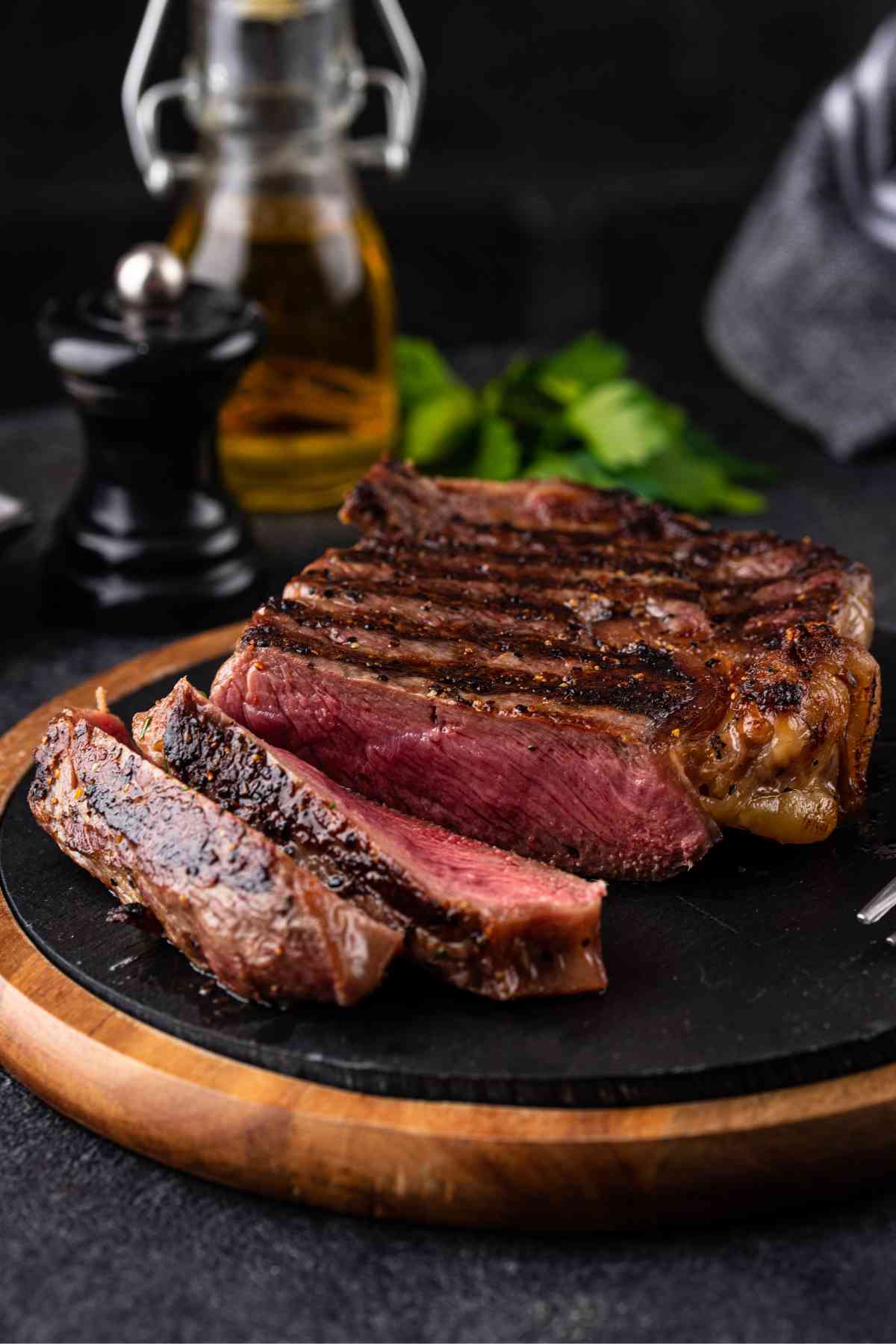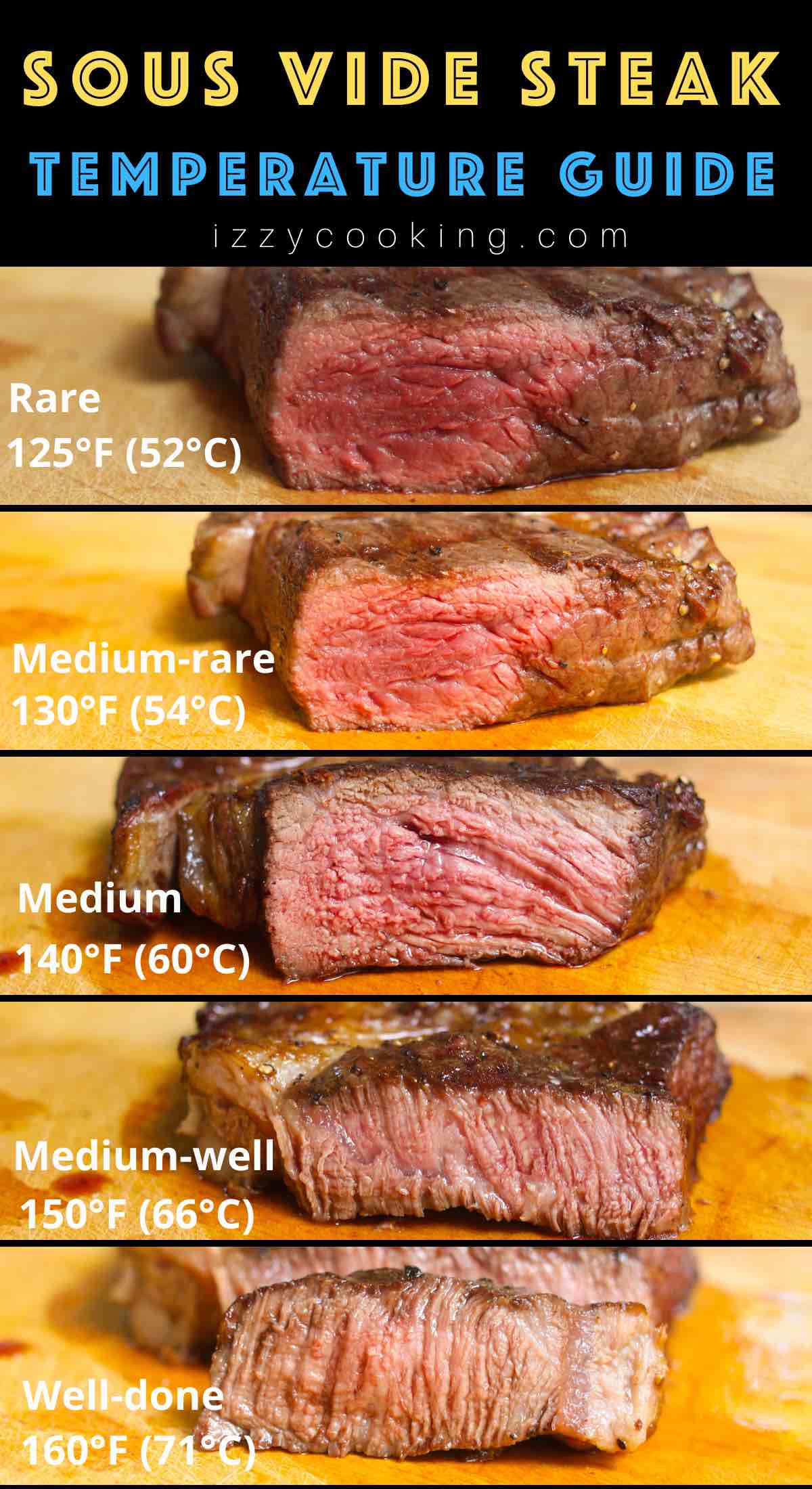Medium Steak Internal Temp: The Perfect Guide To Cooking Your Steak Just Right
Ever wondered what makes a medium steak so irresistible? It’s all about that magical medium steak internal temp! Whether you’re a seasoned chef or just someone trying to impress friends at a backyard barbecue, understanding the perfect internal temperature is key. Cooking steak might seem intimidating, but once you nail the internal temp, you’re golden. So, buckle up and get ready to become the steak whisperer of your neighborhood!
Let’s be honest here, folks. Steak is one of those foods that can make or break a meal. Undercook it, and you’re left with a chewy piece of meat that’s more suited for a dog than a human. Overcook it, and you’ve got a hockey puck on your plate. The goal? A perfectly cooked medium steak with that beautiful pink center and a hint of char on the outside. It’s like the holy grail of beef lovers.
Now, before we dive deep into the world of medium steak internal temp, let’s get one thing straight. Cooking steak is not rocket science, but it does require a bit of finesse. You need to know your cuts, your cooking methods, and most importantly, your temps. So, grab your thermometer and let’s get cooking. Your taste buds will thank you later!
Read also:Noughty America Exploring The Bold Side Of The United States
What Exactly is Medium Steak?
Alright, let’s break it down. A medium steak is basically a piece of meat that’s cooked to an internal temperature of 130°F to 135°F. This gives you that gorgeous pink center with a slight bit of brown around the edges. It’s juicy, flavorful, and just the right amount of tender. But here’s the kicker – not all steaks are created equal. The cut of meat, the thickness, and even the quality of the beef can affect how your steak turns out.
Now, why is medium steak so popular? Well, it’s that perfect balance between doneness and juiciness. It’s not as rare as a medium-rare, but it’s not as dry as a medium-well either. It’s like the Goldilocks of steak temps – just right. So, whether you’re a fan of ribeye, sirloin, or filet mignon, cooking it to a medium temp is a surefire way to please your palate.
Why Internal Temp Matters
Here’s the deal – the internal temp of your steak is crucial. It’s what determines how your steak will taste and feel in your mouth. If you don’t get the temp right, you might end up with a piece of meat that’s either too raw or too tough. And who wants that? Not me, and definitely not you.
But why does the internal temp matter so much? Well, as the steak cooks, the proteins inside start to denature and contract. This is what gives the steak its texture and flavor. If the temp is too low, the proteins don’t have enough time to break down, leaving you with a tough piece of meat. On the other hand, if the temp is too high, the proteins overcook, making the steak dry and flavorless. It’s all about finding that sweet spot.
How to Measure Medium Steak Internal Temp
So, how do you measure the internal temp of your steak? The answer is simple – use a meat thermometer. There are two types of thermometers you can use: instant-read and probe thermometers. Instant-read thermometers are great for quick checks, while probe thermometers are perfect for long cooking sessions.
Here’s a quick tip – always insert the thermometer into the thickest part of the steak, away from any bones or fat. This will give you the most accurate reading. And don’t forget to let the steak rest for a few minutes after cooking. This allows the juices to redistribute, making your steak even juicier.
Read also:Chris Brown Parents The Untold Story Behind The Superstars Family
Factors Affecting Medium Steak Internal Temp
Now, let’s talk about the factors that can affect your medium steak internal temp. First up, the thickness of the steak. A thicker steak will take longer to cook, so you might need to adjust your cooking time accordingly. Next, the cut of meat. Some cuts, like ribeye, have more fat and marbling, which can affect how they cook. Lastly, the quality of the beef. Grass-fed beef, for example, tends to cook faster than grain-fed beef.
Here’s a list of factors to keep in mind:
- Thickness of the steak
- Cut of meat
- Quality of the beef
- Cooking method
- Resting time
Choosing the Right Cut for Medium Steak
Not all cuts are ideal for medium steak. Some cuts, like filet mignon, are naturally tender and can handle a higher internal temp. Others, like flank steak, are better suited for lower temps. So, how do you choose the right cut for your medium steak?
Here’s a quick guide:
- Ribeye – perfect for medium steak due to its high fat content
- Sirloin – a good choice for those who want a leaner cut
- Filet Mignon – ideal for a tender and juicy medium steak
Cooking Methods for Medium Steak
Now that you know the importance of internal temp and the right cuts, let’s talk about cooking methods. There are several ways to cook a medium steak, each with its own pros and cons. The most popular methods include grilling, pan-searing, and broiling.
Grilling is great for that smoky flavor, while pan-searing gives you that beautiful crust. Broiling, on the other hand, is perfect for those who want a quick and easy method. The key is to find the method that works best for you and your equipment.
Tips for Grilling Medium Steak
Grilling is one of the most popular methods for cooking medium steak. Here are a few tips to help you get it just right:
- Preheat your grill to high heat
- Season your steak generously with salt and pepper
- Let the steak rest for a few minutes before grilling
- Use a meat thermometer to check the internal temp
- Let the steak rest after grilling to allow the juices to redistribute
Common Mistakes to Avoid
Even the best chefs make mistakes when cooking steak. Here are a few common ones to watch out for:
- Cooking the steak straight from the fridge – this can lead to uneven cooking
- Flipping the steak too often – this can prevent a good sear from forming
- Not letting the steak rest – this can cause the juices to escape, leaving you with a dry piece of meat
Remember, cooking a medium steak is all about patience and attention to detail. Avoid these common mistakes, and you’ll be well on your way to steak perfection.
Health Benefits of Medium Steak
Now, let’s talk about the health benefits of medium steak. Steak is a great source of protein, iron, and essential vitamins and minerals. It’s also rich in omega-3 fatty acids, which are great for heart health. Just be sure to choose lean cuts and cook them in a healthy way to maximize the benefits.
Here’s a quick list of the health benefits:
- High in protein
- Rich in iron
- Good source of omega-3 fatty acids
- Contains essential vitamins and minerals
Choosing Lean Cuts for Health
If you’re looking to make your medium steak healthier, choose lean cuts like sirloin or flank steak. These cuts are lower in fat and calories, making them a great option for those watching their waistline. Just be sure to cook them properly to avoid drying them out.
Conclusion
So, there you have it – the ultimate guide to cooking the perfect medium steak. By understanding the importance of internal temp, choosing the right cut, and using the right cooking method, you can create a steak that’s juicy, flavorful, and tender every time.
Now, it’s your turn to put this knowledge into action. Grab your favorite cut of beef, fire up the grill, and get cooking. And don’t forget to share your results with us in the comments below. We’d love to hear about your steak adventures!
Table of Contents
- What Exactly is Medium Steak?
- Why Internal Temp Matters
- How to Measure Medium Steak Internal Temp
- Factors Affecting Medium Steak Internal Temp
- Choosing the Right Cut for Medium Steak
- Cooking Methods for Medium Steak
- Common Mistakes to Avoid
- Health Benefits of Medium Steak
- Choosing Lean Cuts for Health
- Conclusion



